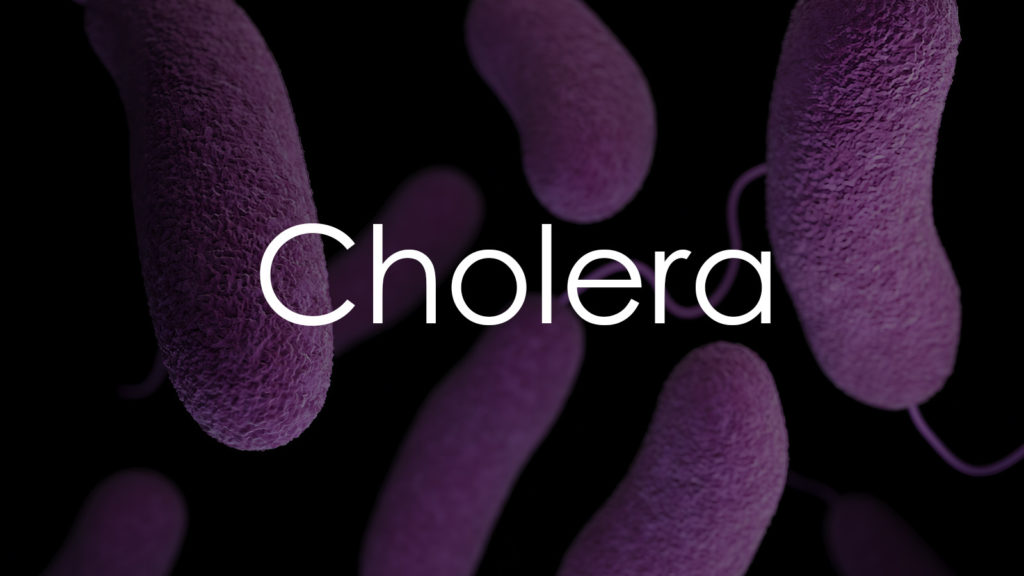Cholera is an acute diarrheal illness caused by the bacterium Vibrio cholerae. It primarily spreads through contaminated water and food, leading to outbreaks in areas with poor sanitation. Recognizing the symptoms of cholera is crucial for early diagnosis and prompt treatment, which can significantly reduce the risk of severe complications and death. This article delves into the various symptoms of cholera, highlighting both the common and severe manifestations of the disease.

Common Symptoms of Cholera
Watery Diarrhea
The most characteristic symptom of cholera is watery diarrhea. Often described as «rice-water stools» due to its pale, milky appearance, this diarrhea can be extremely profuse, with an individual losing several liters of fluid per day. The diarrhea is typically painless but can lead to rapid dehydration if not treated promptly.
Vomiting
Vomiting is another common symptom of cholera, often accompanying the onset of diarrhea. It can occur without nausea and usually involves the expulsion of large amounts of fluid, further contributing to dehydration.
Mild to Moderate Dehydration
Due to the rapid loss of fluids from diarrhea and vomiting, mild to moderate dehydration is a common early symptom of cholera. Symptoms of dehydration include dry mouth, increased thirst, reduced urine output, and fatigue. If left untreated, dehydration can quickly progress to a more severe state.
Severe Symptoms of Cholera
Severe Dehydration
In cases of severe cholera, dehydration can become life-threatening within hours. Severe dehydration is characterized by extreme thirst, very low or no urine output, sunken eyes, dry and shriveled skin, and a rapid heart rate. This condition requires immediate medical attention to prevent fatal outcomes.
Hypovolemic Shock
One of the most severe complications of cholera is hypovolemic shock, which occurs when the body loses a significant amount of blood volume due to dehydration. Symptoms include low blood pressure, a weak and rapid pulse, cold and clammy skin, confusion, and loss of consciousness. Hypovolemic shock is a medical emergency that can quickly lead to organ failure and death if not treated.
Muscle Cramps
Muscle cramps are a painful symptom of cholera that result from the rapid loss of electrolytes, particularly sodium, potassium, and chloride, through diarrhea and vomiting. These cramps typically affect the legs and abdomen and can be severe enough to cause significant discomfort.
Weakness and Fatigue
As the body loses fluids and electrolytes, weakness and fatigue become increasingly pronounced. Individuals with cholera may feel extremely weak, lethargic, and unable to perform even simple tasks. This weakness is due to the body’s inability to maintain normal physiological functions in the face of severe dehydration and electrolyte imbalance.
Sunken Eyes and Dry Skin
Sunken eyes and dry skin are visible signs of severe dehydration in cholera patients. The eyes may appear deeply sunken into the sockets, and the skin can lose its elasticity, becoming dry and shriveled. These symptoms are indicators of advanced dehydration and require urgent medical intervention.
Symptoms of Complicated Cholera
Renal Failure
In severe cases, cholera can lead to renal failure, where the kidneys are no longer able to filter waste from the blood effectively. This is usually a result of prolonged dehydration and electrolyte imbalances. Symptoms of renal failure include reduced or no urine output, swelling in the legs and ankles, and confusion. Without treatment, renal failure can be fatal.
Metabolic Acidosis
Metabolic acidosis is a serious condition that can occur in cholera patients due to the loss of bicarbonate through severe diarrhea. It leads to an imbalance in the body’s pH levels, causing symptoms such as rapid breathing, confusion, fatigue, and, in severe cases, coma. Metabolic acidosis is a critical condition that requires immediate treatment to correct the acid-base imbalance.
Electrolyte Imbalance
Cholera can cause significant electrolyte imbalances due to the rapid loss of sodium, potassium, and chloride. This imbalance can lead to serious complications, including irregular heartbeats, muscle weakness, and neurological disturbances. If not corrected promptly, electrolyte imbalance can be life-threatening.
Atypical Symptoms of Cholera
Mild Cases with Few Symptoms
In some instances, cholera can present with mild symptoms or even no symptoms at all. These cases are often harder to detect and can lead to the unintentional spread of the bacteria to others. Individuals with mild symptoms may experience only slight diarrhea or discomfort, but they can still shed the bacteria in their stool.
Symptoms in Vulnerable Populations
Vulnerable populations, such as children, the elderly, and individuals with compromised immune systems, may exhibit different or more severe symptoms of cholera. Children, for instance, may become dehydrated more quickly and may show signs of irritability or drowsiness. The elderly might experience more pronounced weakness and confusion due to dehydration.
Recognizing the Signs of Severe Cholera
Rapid Onset of Symptoms
Cholera can progress rapidly, with severe symptoms developing within a few hours of the onset of diarrhea and vomiting. It is crucial to recognize the signs of severe cholera, such as intense thirst, rapid breathing, and reduced urine output, and seek immediate medical attention to prevent complications.
Importance of Early Diagnosis and Treatment
Early diagnosis and treatment are vital in managing cholera effectively. The sooner the symptoms are recognized and treated, the better the chances of recovery. Prompt rehydration therapy, either orally or intravenously, is essential to replace lost fluids and electrolytes and prevent the progression of the disease.
Conclusion
Understanding the symptoms of cholera is crucial for early detection and treatment, which can save lives and prevent the spread of the disease. From common symptoms like watery diarrhea and vomiting to severe complications like hypovolemic shock and renal failure, recognizing the signs of cholera and responding quickly is essential. In areas prone to cholera outbreaks, awareness and education about the symptoms can significantly reduce the impact of this potentially deadly disease. If you or someone you know experiences any of the symptoms described in this article, it is important to seek medical attention immediately.